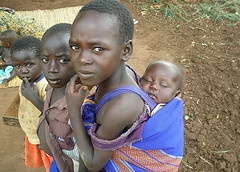
|
Mother Pelican
A Journal of Sustainable Human Development
Vol. 7, No. 2, February 2011
Luis T. Gutierrez, Editor
|
|
|
|

|
|
|
Globalization and Collective Violence:
The Role of Humiliation
Thomas J. Scheff
Professor Emeritus of Sociology
University of California - Santa Barbara
Final Draft Received 11 January 2011
|
It seems to me that most studies of terrorism and other collective violence
(such as Smelser 2007) omit what may be a crucial causal factor. Several
recent empirical studies suggest that those who actually commit terrorist
acts, as contrasted with the much larger groups of those who merely
volunteer to do so, have social-emotional histories of intense humiliation
(Strozier, et al 2010, pp. 143-147. See also Stern 2003; Hemick, 2004; Jones
2008).
In an approach to collective conflict that complements and extends these
findings, Dennis Smith (2006) has outlined how most military, political,
and/or economic power leads to humiliation of the subdued groups, and how
humiliation can lead to endless rounds of revenge. The present policies of
the richer and more powerful nations are manufacturing terrorism and
violence.
Individuals and groups are usually able to avoid conflict through
negotiation, unless there is an intense history of humiliation and the
subsequent desire for counter-humiliation and revenge. Humiliation and
revenge were particularly transparent in the origin of World War I, where
there was no attempt to hold meetings for negotiation before the war began,
and in the subsequent rise of Hitler to power (Scheff 1994).
The essential message is that if we don't stop humiliating people and groups
of people, our civilization is going down the tube. Humiliation may be by
far the most dangerous element in our world, infinitely more lethal than
plutonium. Yet humiliation, because it is part of the social-emotional
world, is still more or less invisible in modern societies, both to
researchers and the public. This world is no more important than the
political and economic world, but it is too important to be left out
entirely.
References
Helmick, R. G. (2004). Negotiating Outside the Law: Why Camp David Failed.
London: Pluto Press.
Jones, James W. (2008). Blood that Cries Out from the Earth. Oxford: Oxford
University Press.
_____________2010. Shame, Humiliation and Religious Violence. The Shame
Factor Conference, Lincoln Nebraska, October 24-26.
Scheff, Thomas. 1994. Bloody Revenge: Emotion, Nationalism and War.
Westview Press (Reissued by iUniverse 2000)
Smelser, Neil (2007). The Faces of Terrorism: Social and Psychological Dimensions.
Princeton University Press.
Smith, Dennis (2006). Globalization: the Hidden Agenda. Cambridge: Polity.
Stern, Jessica (2003). Terror in the Name of God. New York: Ecco Press.
Strozier, Charles, David Terman, and James Jones (2010). The Fundamentalist
Mindset. Oxford: Oxford University Press.
About the Author: Thomas J. Scheff, is Professor Emeritus of Sociology, University of California - Santa Barbara. He is the author of several books: Being Mentally Ill, Microsociology, Emotions and Violence (with Suzanne Retzinger), Bloody Revenge, Emotions and the Social Bond, Goffman Unbound, and Easy Rider. His fields of research are social psychology, emotions, and mental illness. His current studies concern solidarity-alienation and the emotional/relational world. This is his homepage.
|
Assessing the Impact of
Increased Global Food Prices on the Poor:
The Case of Sub-Saharan Africa
Sara Gustafson
Administrative Coordinator
Markets, Trade and Institutions Division
International Food Policy Research Institute (IFPRI)
Washington, DC.
8 January 2011
Reproduced with permission from the IFPRI.
The original document can be found HERE.

Malnourished children in Northern Uganda
Source: IFPRI
|
The global food crisis of 2007–08 was characterized by a sharp spike in the prices of most agricultural commodities, including staple grains. High world prices were transmitted to domestic markets, eroding the purchasing power of urban households and particularly the poor. In dozens of countries, high prices sparked demonstrations and riots. A number of countries, including Argentina, India, Russia, and Vietnam, responded by restricting rice and wheat exports in an attempt to keep domestic prices from rising. At the same time, international food aid budgets were stretched, as increased need in developing countries coincided with decreased purchasing power of the World Food Programme and other food aid agencies.
The FAO’s recent statement that world food prices reached a record high in December 2010 has raised the specter of another global food crisis. This scenario has serious implications for the developing world, and raises several questions regarding Africa in particular. What impact did the 2007–08 global price spike have on Sub-Saharan Africa? More specifically, to what degree do changes in world food markets influence the price of staple foods in the region?
IFPRI Senior Research Fellow Nicholas Minot has studied such price transmission through a project funded by the Policy and Research Division of the Department for International Development (DfID) of the United Kingdom. Project findings suggest that African governments can reduce their countries’ vulnerability to external food shocks by investing in agricultural research, pursuing more predictable economic policies, facilitating grain trade, and promoting diversification in staple consumption.
ATTACHMENT: Transmission of World Food Price Changes to
Markets in Sub-Saharan Africa, Nicholas Minot, IFPRI, December 2010. This publication includes an introduction to the global food crisis, trend data and econometric analysis of commodity prices, and some recommendations for mitigation of the crisis in Sub-Saharan Africa.
About the Author and IFPRI: Sara Gustafson is an Administrative Coordinator at the Markets, Trade and Institutions Division, International Food Policy Research Institute (IFPRI), Washington, DC. The IFPRI is supported by the Consultative Group on International Agricultural Research (CGIAR).
|
|
|Back to First Article|
|Back to Second Article|
Page 1
Page 2
Page 3
Page 4
Page 5
Page 6
Page 7
Page 8
Page 9
Supplement 1
Supplement 2
Supplement 3
Supplement 4
PelicanWeb Home Page
|
|
|
|
"The conventional view serves to protect us
from the painful job of thinking."
John Kenneth Galbraith
|
|
Page 5
|
|
FREE SUBSCRIPTION
|
![[groups_small]](groups_small.gif)
|
Subscribe to the
Mother Pelican Journal
via the Solidarity-Sustainability Group
Enter your email address:
|
|
|
|